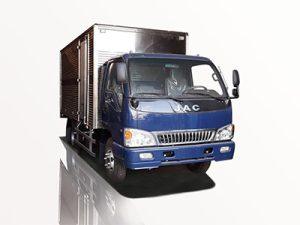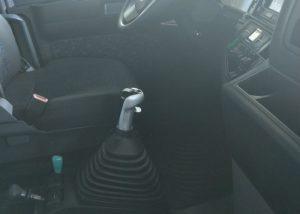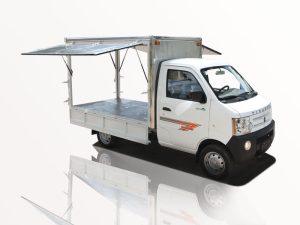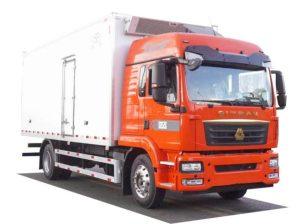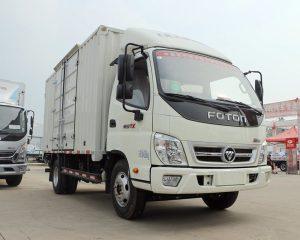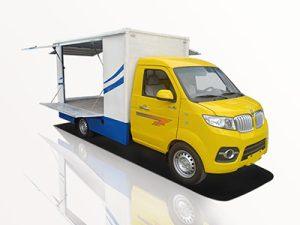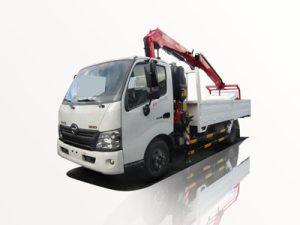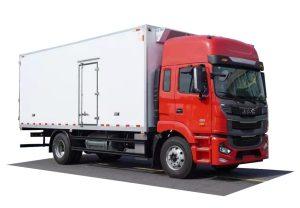Monday to Saturday - 8:00 -17:30
Sewage Pump Truck: An In-Depth Guide to Understanding and Choosing the Right One
Sewage pump trucks are specialized vehicles designed to transport and dispose of wastewater and sewage. They play a crucial role in municipal waste management and are essential for handling environmental sanitation. In this article, we will explore the key features, types, uses, and maintenance of sewage pump trucks. We will also provide practical tips to help you select the right sewage pump truck for your needs.
What is a Sewage Pump Truck?
A sewage pump truck, often referred to as a vacuum truck, is equipped with a powerful vacuum pump that allows it to suck up and transport liquid waste, including sewage, sludge, and other contaminants. These trucks are used in various applications, including construction sites, residential areas, and industrial facilities, where waste removal is needed.
Key Components of a Sewage Pump Truck
- Vacuum Tank: The primary feature of a sewage pump truck, designed to hold collected waste.
- Pump System: This includes the vacuum pump and discharge system used to load and unload waste.
- Hoses: Heavy-duty hoses for suction and discharge, available in various sizes depending on the application.
- Chassis: The truck’s base that supports the vacuum tank and pump system.
How Sewage Pump Trucks Work
Sewage pump trucks operate on a straightforward principle. The vacuum pump creates negative pressure inside the tank, causing waste to be sucked into the hoses and deposited into the tank. Once the tank is full, the truck can transport the waste to a treatment facility or disposal site for proper processing.
Types of Sewage Pump Trucks
1. Standard Vacuum Pump Trucks
Standard vacuum pump trucks are typically used for municipal and residential sewage collection. They are equipped with a single vacuum pump and are ideal for routine waste collection.
2. Combination Trucks
Combination trucks feature both vacuum and pressure jetting systems, allowing them to clean and clear clogged sewer lines while also handling sewage removal. These trucks are versatile and commonly used by municipalities.
3. Septage Trucks
Septage trucks are specifically designed for the collection and transportation of liquid waste from septic tanks. They typically have larger tanks and more robust suction capabilities.
4. Industrial Vacuum Trucks
Industrial vacuum trucks are heavier-duty vehicles used in industrial settings where large volumes of waste, including hazardous materials, need to be collected and disposed of.
Common Uses of Sewage Pump Trucks
Sewage Removal
The primary purpose of sewage pump trucks is the efficient removal of sewage from residential and commercial properties. Regular maintenance helps prevent backups and maintains public health.
Storm Water Management
Sewage pump trucks are also used to manage stormwater runoff. They help remove excess water from flood-prone areas, ensuring that urban flooding does not occur.
Construction Sites
In construction sites, sewage pump trucks are employed to remove wastewater generated during building projects, ensuring that sites remain clean and operational.
Cleaning Sewer Lines
Combination trucks are commonly used for cleaning sewer lines. By using high-pressure water jets and vacuum systems, they can keep sewer systems free of obstructions.
Features to Look for in a Sewage Pump Truck
Tank Capacity
Consider the tank capacity based on your waste management needs. Larger tanks are suitable for industrial applications, while smaller tanks may suffice for residential use.
Vacuum Power
Evaluate the vacuum pump’s horsepower to ensure it can handle the types of waste you’ll be dealing with. Higher horsepower is beneficial for thicker sludge.
Durability
The materials used in the construction of the tank and hoses should be robust and corrosion-resistant, particularly if dealing with chemical waste.
Size and Maneuverability
Consider the size of the truck and whether it can easily navigate through narrow streets or tight spaces, especially in urban environments.
Maintenance Tips for Sewage Pump Trucks
Regular Inspection
Conduct regular inspections of the pump, hoses, and tank to identify wear and tear before they become serious issues.
Clean the Tank
Regular cleaning of the tank is essential to prevent odors and ensure efficient operation. Use the proper cleaning agents to prevent corrosion and buildup.
Check for Leaks
Inspect the hoses and fittings for leaks that could compromise the pump’s efficiency. Replace any damaged parts immediately to avoid environmental contamination.
Oil and Fluid Checks
Regularly check the oil levels and fluids in the pump system. Keeping these at optimal levels reduces wear on the components.
Practical Examples of Sewage Pump Truck Applications
| Application | Type of Truck | Best Practices |
|---|---|---|
| Residential Sewage Removal | Standard Vacuum Truck | Conduct regular schedules to avoid backups |
| Construction Waste Management | Industrial Vacuum Truck | Plan waste removal during off-peak hours |
| Sewer Line Cleaning | Combination Truck | Follow safety protocols while operating |
| Stormwater Management | Standard Vacuum Truck | Monitor weather conditions to anticipate needs |
Cost Considerations for Sewage Pump Trucks
The cost of sewage pump trucks can vary widely based on factors such as truck type, capacity, and additional features. On average, standard sewage pump trucks can range from $50,000 to $150,000, while specialized industrial trucks may cost significantly more. Additionally, it’s important to consider operational costs, including maintenance and fuel expenses, when budgeting.
Frequently Asked Questions (FAQ)
1. How often should sewage pump trucks be serviced?
Sewage pump trucks should ideally be serviced every 1,000 hours of operation or annually, whichever comes first. Regular maintenance helps extend the lifespan of the truck and ensures efficient operation.
2. Can sewage pump trucks handle hazardous waste?
Some sewage pump trucks are designed to handle hazardous waste, but it’s important to ensure that they meet local regulations and standards for transporting such materials.
3. What should I do if my sewage pump truck breaks down?
If your sewage pump truck breaks down, immediately contact a qualified technician for repairs. In the meantime, avoid using the truck until it has been properly assessed.
4. Are there rental options available for sewage pump trucks?
Yes, many companies offer sewage pump trucks for rent. This option can be cost-effective for businesses that only require the truck for a limited time or specific projects.
5. What safety measures should be taken when operating a sewage pump truck?
Operators should wear appropriate personal protective equipment (PPE), follow safety procedures, and ensure the truck’s components are in good working condition before operation.
6. How can I choose the right sewage pump truck for my needs?
Evaluate the type of waste you’ll be handling, necessary tank capacity, and your budget. Consulting with a supplier can also provide valuable insights into which truck will best suit your requirements.


